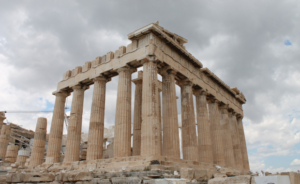We are living in a strange new world, brought to us to by some terrorists who on Sept. 11, 2001 attacked the United States of America by using commercial jetliners as deadly weapons.
Everyone who boards an airplane is subject to potentially intense scrutiny by security agents working for the federal government.
Isn’t that right, Alec Baldwin?
http://www.nydailynews.com/entertainment/gossip/alec-baldwin-5-month-old-daughter-selected-tsa-pat-article-1.1593109
Baldwin was returning from a vacation with his wife and five-month-old daughter, Carmen, when Transportation Security Administration agents decided to pat down — gulp! — the baby.
The sometimes-tempestuous actor tweeted about the incident, signing off with the hashtag #travelingUSisadisgrace.
I won’t get into Baldwin’s previous run-ins with flight crews and airport security officials, but I feel an odd obligation to defend the TSA in this latest incident.
I’m not sure how I would react if I was traveling, say, with my 11-month-old granddaughter and some TSA agent pulled Emma out of a line and started patting her down. I might express more-than-mild surprise, I suppose.
However, from a distance as it relates to little Carmen getting frisked, I have the luxury of being able to reflect just a bit.
Consider a couple of things here:
The bad guys who killed all those people on 9/11 told the world that virtually any act of evil is possible when flying on an jetliner. We also know that terrorists would use any means necessary — any means at all — to harm others. That means they would be fully capable of arming infants with explosive devices.
What’s more, it is totally plausible that someone seeking to sneak contraband into a country — say, drugs or weapons — might consider stuffing it into a baby’s diaper. Is it possible? The question you have to wonder, though, is its probability. Why take the chance to assume that such a thing cannot happen?
I’ve been aggravated myself by overzealous TSA agents in the years since 9/11. My wife and I have traveled some overseas and we’ve been subjected to intense scrutiny by security agents. You haven’t lived, for example, until you’ve been interrogated by an Israeli airport security guard at David Ben-Gurion International Airport in Tel Aviv.
One consideration in this Baby Baldwin pat-down caper has to be how the TSA agent handled it. Was he or she discreet? Was the agent courteous and did the agent explain fully why? My wife and I were leaving Venizelos International Airport in Athens in November 2001 — two months after 9/11 — and had every luggage item searched meticulously by an agent, who took the time to apologize profusely for the intrusion.
Should it be routine to frisk every baby who flies on these commercial jetliners? No. I do get, though, the need to take extra precaution, even if it involves an act that seems ludicrous.
